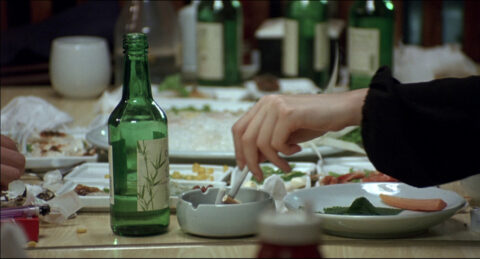Arsenal Kino, DCP
Life isn’t a movie.
With the right perspective though, it can at least resemble a movie. And movies can resemble life. Some obliquely, some fantastically and others, head-on.
Living like you’re in a Hong Sangsoo movie is easier than others (like, for example, The Transformer movies). There’s the food, the drink, the repetition, city scenes and awkward conversation; the slices of reality that are easy to replicate in your own life. At once quotidian and slyly profound, the realistic vibes of a Hong film can often feel the most cinematic of all.
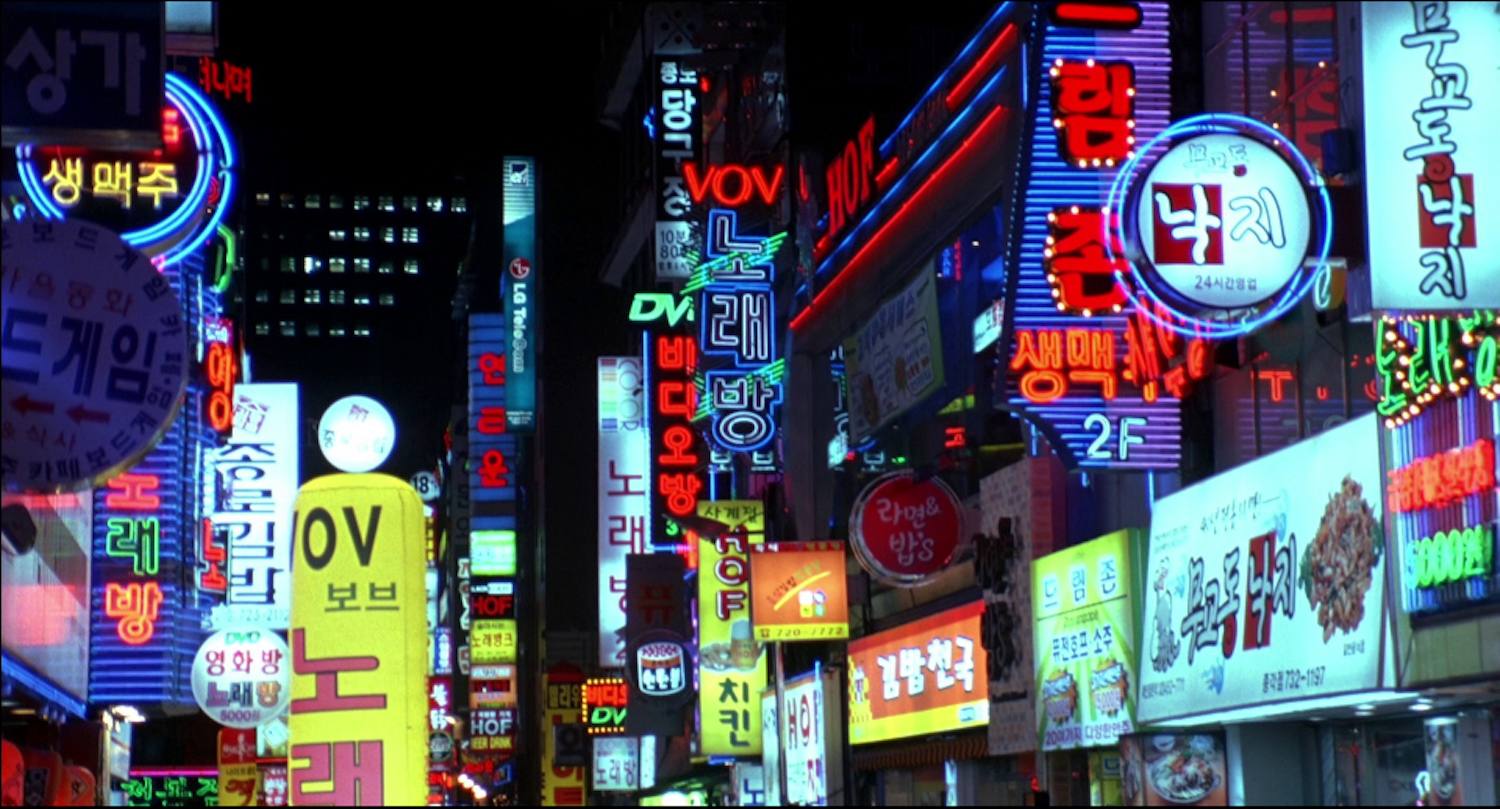
Talking of food, drink, repetition, every time I see the same old friend in London, we eat in the same Korean restaurant at Waterloo, drinking Soju and Cass beer, eating kimchi, bibimbap, eel and beef. We get progressively more tipsy and talk: and while there’s little space for angry confrontation, most of the other Hong-isms feel like they’re there. Something about the shared knowledge seems to elevate proceedings.
With Tale Of Cinema (Hong Sangsoo, 2005), positioning me once again at Arsenal Kino, Hong himself reflects if life is ever like the movies. Obliquely, fantastically and head-on, he delves into the question of art meeting life in a classic two-parter; refracting on itself to delightful, quizzical, ends.
The first half is pure, naive, charming, and odd. A young man, Jung Sangwon (Lee Kiwoo), is given 200,000 won (about £100 in 2005) by his brother and is determined to blow it. He meets an old female friend, Choi Youngsil (Uhm Jiwon). They reconnect over beer and soju, get progressively drunk and try and have sex in a dingy hotel. He can’t finish. And if he can’t have a petite mort, then only the grande one will do. Sangwon proposes a suicide pact…
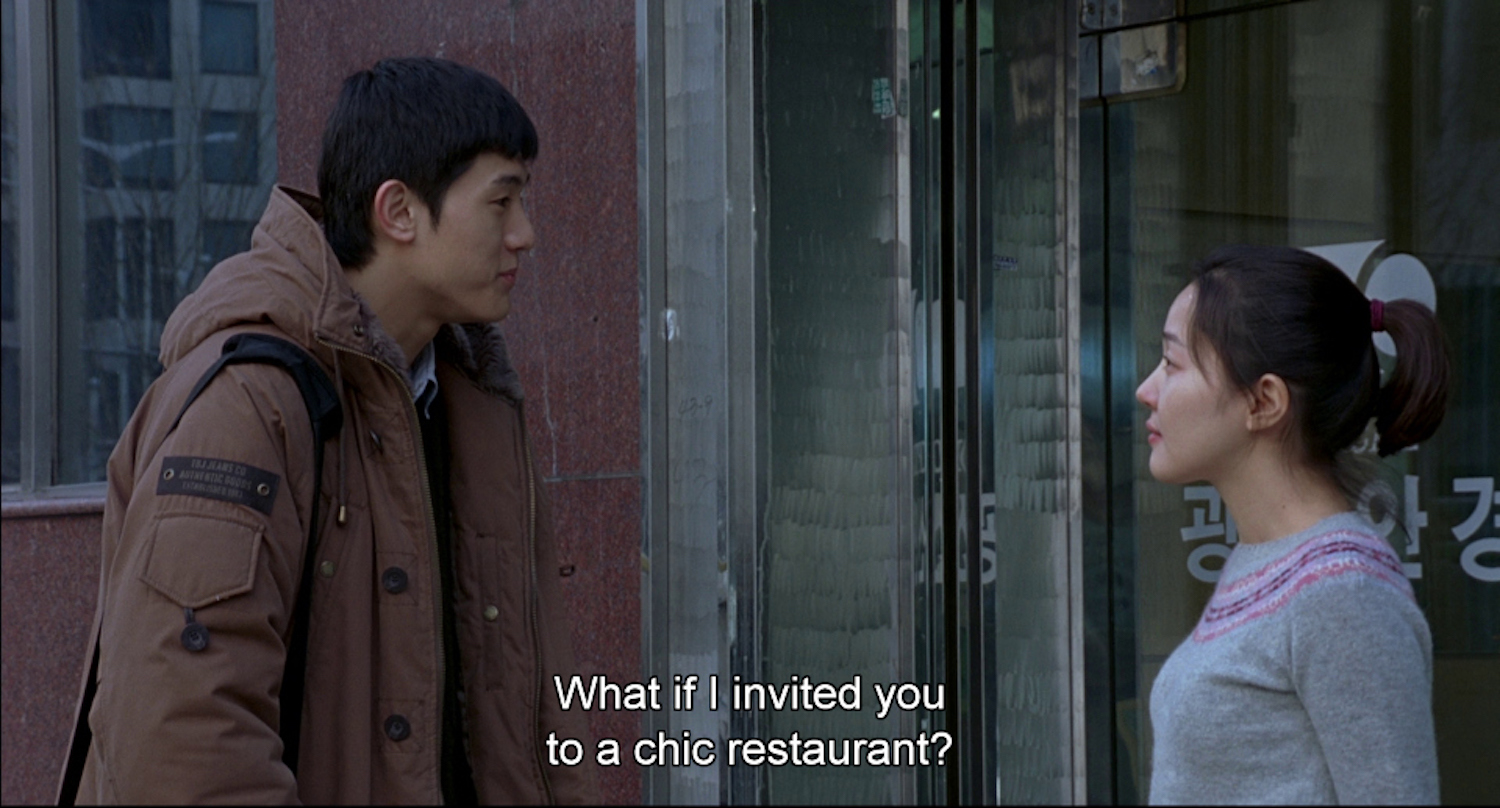
I won’t spoil the rest, only to say the rest of this first half is, in fact a movie. I mean, of course, it’s a movie. Tale Of Cinema itself is a movie. But in Tale of Cinema, the movie, the short movie becomes a fantasy that provides the inspiration for real life (which, of course, is also a movie but more real in its conception than the previous movie, both of which are part of the same movie). Or perhaps it’s the other way around. Because this movie is playing at a retrospective. (Not Tale of Cinema, which was not playing at a retrospective, but a special book presentation for Dennis Lim, who wrote a book called Tale of Cinema, about Tale of Cinema, the movie, but the short movie in Tale of Cinema.). A retrospective attended by an old classmate, Kim Dongsoo (Kim Sang-kyung), in town for a meeting raising money for the ailing artist’s sudden medical bills.
Subtly, then obviously, it’s evident that as the grande artiste is dying, the attendee wants to draw out the power of the movie for himself. He starts by smoking the same cigarettes. Marlborough Reds. Dongsoo wants to smoke constantly, even in inappropriate places, like in front of another classmate’s children.
First it’s fun to adopt the postures, but what do you do when you have the chance to intimately connect with art? He has the ultimate chance when he meets Youngsil from the short; also called Youngsil, she’s now a movie star, made famous by her first starring role.
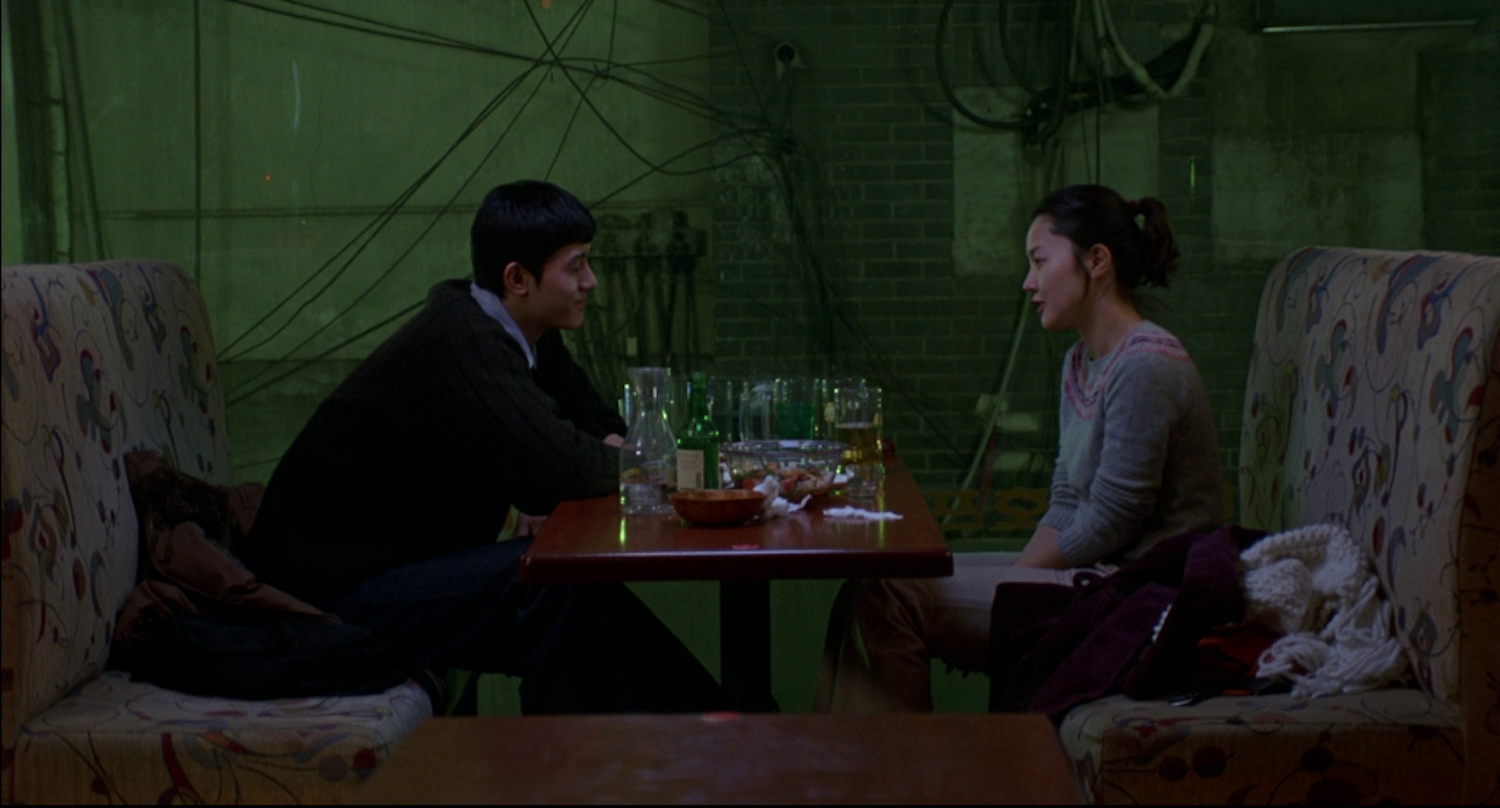
He’s smitten. One suggests it’s not only due to her natural beauty, but the way she so forcefully inhabits a young, doomed woman joining this young Werther on his semi-sexual suicidal fixation. Not only in a way that seems semi-realistic, but in a way that also seems artistic. He wants both her and the idea of her.
These things never go well. They’re particularly awkward when caught in medium takes. Hong uses his characteristic zoom for the first time in his career to emphasise and underline scenes and gestures, and also to remind us, us guys entranced by fiction, that this is just a movie. The final result is one of the great meditations on the indelible, ever-blurring border between art and life.
Tale of Cinema, like so many auto-meta-fictions, is so endearing because it’s not just about watching and interpreting movies, but because it’s also about miswatching and misinterpreting movies. So much effort is put in by critics and artists to impress upon you the importance of gleaning the right meaning of a film that they ignore the sly pleasures of gaining the absolute wrong meaning from a film. Arguably the only way to approach true originality in your own work, if only briefly, is to take away something the original author, or the established critical consensus, never intended in the first place. Besides, it can simply play better that way.
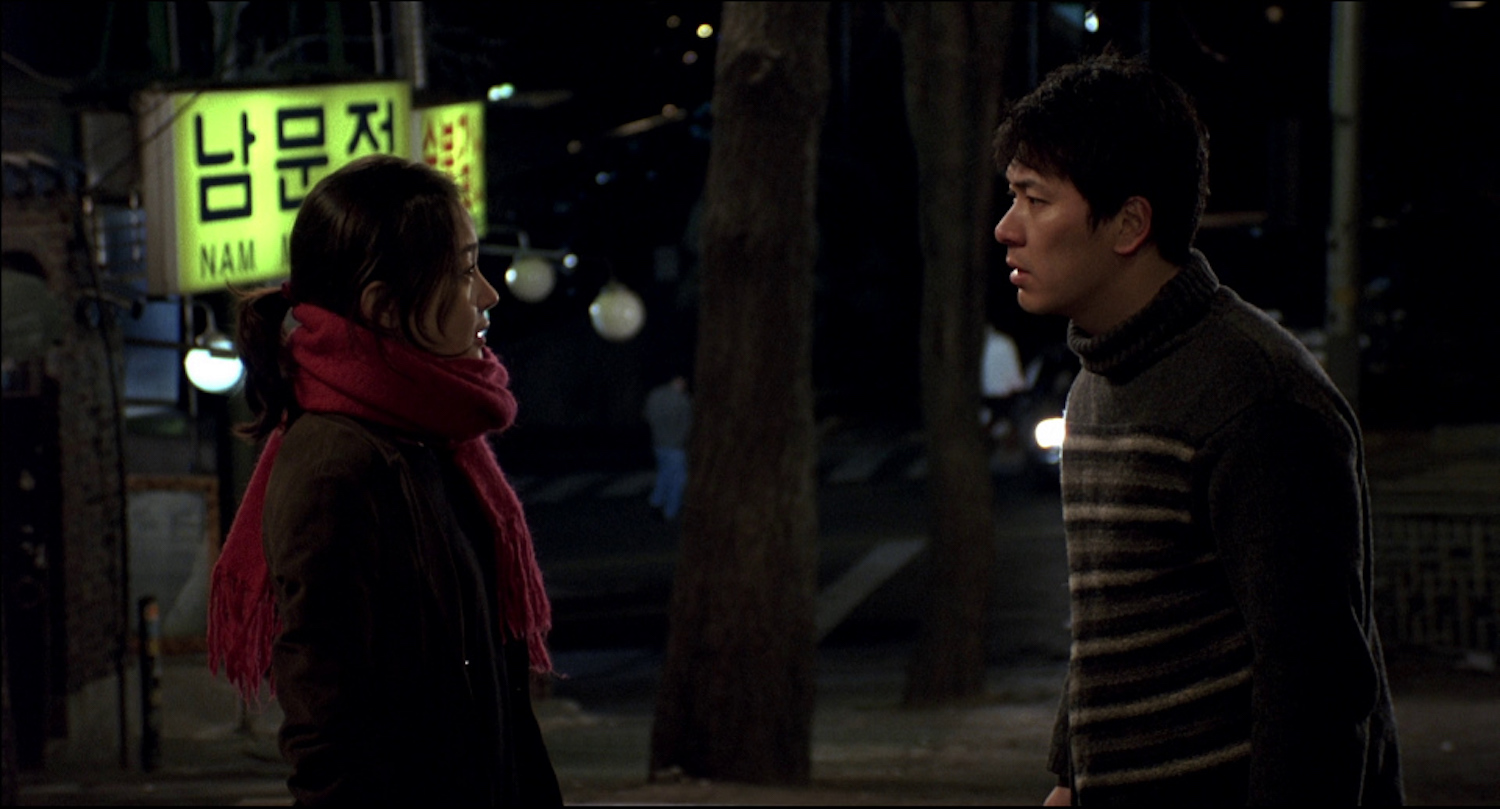
The same goes for relationships, which thrive on misunderstandings. If we were to see people for who they really were, or how they really thought of themselves, would we ever bother falling in love? Relationships are like movies, which are not mere plot descriptions, but half-remembered things, always shifting in the retelling and reinterpreting. And cinema is most like life and relationships in that our own hazy, complicated feelings and biases cloud our relationship to both. But that haziness and complicatedness need not be a curse: in fact, sometimes there’s something so right in being so wrong. (Including, probably to everyone else and hopefully to Mr. Hong himself, this entire interpretation).
Cinema is not life. Life is not cinema. But somewhere in the porous middle, is where all the fun stuff happens. It’s all a matter of having the wrong perspective.
To get the wrong perspective on all the movies, make sure to subscribe to my newsletter.
Redmond is the editor-in-chief of Journey Into Cinema.
